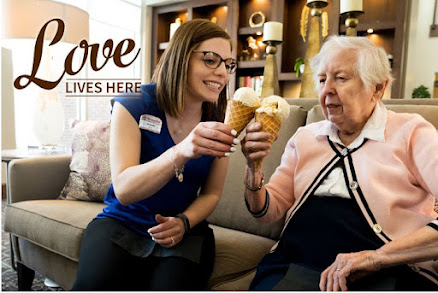Is Cognitive Decline an Inevitable Part of Aging?
The recent World Alzheimer Report 2024 published by Alzheimer's Disease International states eighty percent of the general public think dementia is a normal part of aging. More troubling is that 65 percent of health care professionals believe the same. While the Alzheimer’s Association estimates 1 out of 9 Americans age 65 and older suffer from Alzheimer’s, remember that leaves a greater number of us not getting the disease.
Howard Fillit, M.D., clinical professor of geriatrics, medicine and neuroscience at Mount Sinai School of Medicine in New York City, and chief science officer of the Alzheimer’s Drug Discovery Foundation, explains, “Certain abilities —processing speed, for example — slow down [around] the age of 20 or so, when processing speed peaks; to age 70 or 80, when processing speed can be down as much as 50 to 70 percent.” On the flip side, seniors typically have superior vocabulary and decision-making skills.
The National Institutes of Health recently funded a study to discover if individuals close to someone with dementia looked at it differently. They concluded that “people with a family member with dementia were less likely to believe that dementia is preventable and less confident about the effectiveness of taking preventive actions.” These unfavorable perceptions discouraged them from engaging in healthy behaviors linked to a decrease in a person’s risk for Alzheimer’s. Prior studies also found family members of a person with dementia were more reluctant to get early screening, which is too bad as today’s treatments are best started in the early stages of the disease.
While it is true a direct relative of someone with Alzheimer’s is more likely to develop the disease than those without a first-degree relative, it is not a given. Family genetics are not the only cause of Alzheimer’s. Known risk factors for dementia include obesity, chronic diseases such as type 2 diabetes and hypertension, smoking, and excessive alcohol consumption. A report from the Lancet Commission estimated that up to 40% of dementia cases could be prevented by addressing such risk factors. The Alzheimer’s Association cautions any person considering genetic testing should receive genetic counseling before a test is ordered and once results are obtained. Discuss with your healthcare provider about what is right for you.
At the senior living community of MorningStar of Littleton, we provide an environment designed to enhance quality of life for seniors. This includes a healthy and tasty dining service, a full complement of wellness programs and activities, and an array of resort-style amenities. Our assisted living suites are available in studio and one- and two-bedroom configurations; and designed for your comfort and safety. For seniors with Alzheimer’s and other forms of dementia, our distinct Reflections Neighborhood has 20 memory care suites.
Source:
aarp.org/health/conditions-treatments/info-2024/cognitive-decline-aging.html
ncbi.nlm.nih.gov/pmc/articles/PMC8088446/
.jpg)


Comments
Post a Comment